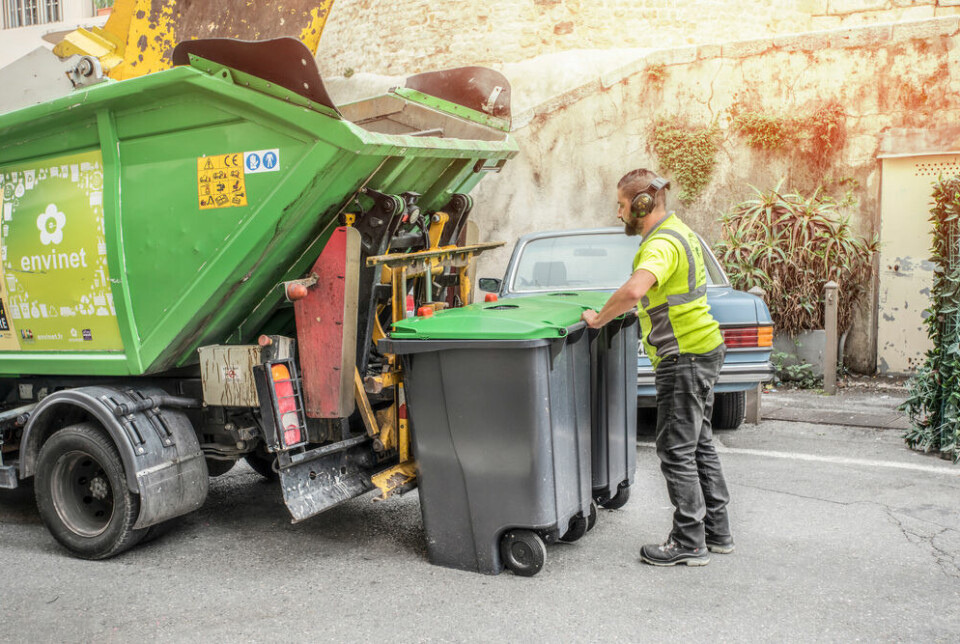French AI system can see inside bin bags: what is it being used for?
The technology uses a camera to detect anomalies, and is already used by 45 communes
The micro-computers help to ensure rubbish is sorted correctly
Mikalai Kachanovich/Shutterstock
A French start-up has developed a micro-computer that uses artificial intelligence (AI) to analyse the contents of rubbish bags, with the tech now used by 45 communes to improve recycling efforts.
The company, Lixo, has been working on the technology for two years. It enables users to detect anomalies in rubbish bins to ensure that bags are sorted correctly for recycling and waste disposal.
How does the technology work?
It uses a small camera, which is installed onto the waste collection lorry.
This camera, which has a sensor, then takes a series of photos as each bin is emptied. The images are sent in real-time to a micro-computer installed in the driver's cab.
An image-recognition algorithm can instantly identify non-compliant waste.
Will this enable authorities to identify and sanction individuals who do not sort their waste properly?
Although this is technically possible, no authority is currently doing this, and none have said they plan to do so.
Stéphane Caplier, recycling sales director at recycling authority Veolia Hauts-de-France has said that Lixo’s technology could theoretically help it to identify households that do not sort their waste properly.
This would hypothetically be possible by cross-referencing data provided by the AI, with the RFID (barcode) location of the rubbish containers, he said.
However, co-founder of the company, Marjorie Darcet, has said that this is not the company’s intention, nor the current (or anticipated) use of the tech. "That's not the aim of our project, and we would have to jump over many legal hurdles to get there," she told 20 Minutes.
Currently, sanctions can only be metered out to businesses if they contravene a rule laid out in a specific waste sorting contract; for example, a pizzeria that leaves pieces of pizza in boxes that it sends for cardboard recycling.
Lille Metropolitan Authority, one of the first to adopt Lixo technology, says it has no plans to use it to sanction individuals or private households.
Read also: Total rubbish: Scam over new household bins in France
‘Educate not target’
Instead, 11 of Lille’s 60 refuse collection vehicles - the largest fleet of collection vehicles currently using the system in France - use the Lixo micro-computers to ensure rubbish is sorted correctly.
“The data collected by AI during collections is and will remain anonymous," said Régis Cauche, vice-president in charge of the city’s waste management. “The aim is to educate and not to target individual households.”
The data collected is used to help authorities "initiate mediation and awareness-raising actions” in neighbourhoods in which there appears to be “too-high a concentration of errors”, said Mr Cauche.
Read also: How does recycling work in France?
Read also: French households throw out more rubbish despite ‘incentive’ bin fees
Saving money on incorrect waste
Recycling errors cost the Lille authority significantly, in a city whose waste collection budget is already €200 million.
"Waste thrown away in the wrong bin costs the local authority two to three times more," said Mr Caplier, at Veolia.
In March this year (2024), data from Lixo showed that almost 50% of bins it analysed contained at least one ‘anomaly’ - something that should not have been sorted into that bin. Anomalies were mainly glass, cardboard, and black plastic bin bags, it said.
Improving waste safety
The technology is also aiming to make waste safer, by - for example - detecting contents such as nitrous oxide cylinders. These can cause major damage and hazards if they explode.
"The safety of waste collection was one of the first issues to prompt Veolia and the Lille metropolitan authority to adopt our technology," said Ms Darcet at Lixo.
Lixo’s technology is also gaining in popularity in a number of European countries, including Portugal, Germany, and the UK. It can also be adapted to a number of climates and conditions, Lixo said.
For example, when the company won a contract in Canada, it was forced to “improve the cold resistance of the sensors”, said Ms Darcet.
The project is also set to be rolled out in the US in the coming years, as “the US is some 30 years behind Europe in the recycling field”, she said.





























